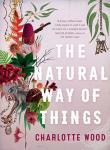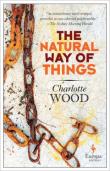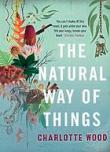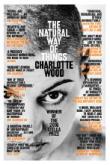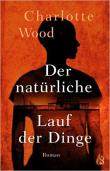AustLit
Latest Issues
AbstractHistoryArchive Description
'She hears her own thick voice deep inside her ears when she says, 'I need to know where I am.' The man stands there, tall and narrow, hand still on the doorknob, surprised. He says, almost in sympathy, 'Oh, sweetie. You need to know what you are.'
'Two women awaken from a drugged sleep to find themselves imprisoned in a broken-down property in the middle of a desert. Strangers to each other, they have no idea where they are or how they came to be there with eight other girls, forced to wear strange uniforms, their heads shaved, guarded by two inept yet vicious armed jailers and a 'nurse'. The girls all have something in common, but what is it? What crime has brought them here from the city? Who is the mysterious security company responsible for this desolate place with its brutal rules, its total isolation from the contemporary world? Doing hard labour under a sweltering sun, the prisoners soon learn what links them: in each girl's past is a sexual scandal with a powerful man. They pray for rescue - but when the food starts running out it becomes clear that the jailers have also become the jailed. The girls can only rescue themselves.
'The Natural Way of Things is a gripping, starkly imaginative exploration of contemporary misogyny and corporate control, and of what it means to hunt and be hunted. Most of all, it is the story of two friends, their sisterly love and courage.
'With extraordinary echoes of The Handmaid's Tale and Lord of the Flies, The Natural Way of Things is a compulsively readable, scarifying and deeply moving contemporary novel. It confirms Charlotte Wood's position as one of our most thoughtful, provocative and fearless truth-tellers, as she unflinchingly reveals us and our world to ourselves.' (Publication summary)
Adaptations
-
form
y
 The Natural Way of Things
Australia
:
2017
9270594
2017
single work
film/TV
The Natural Way of Things
Australia
:
2017
9270594
2017
single work
film/TV
Planned as a micro-budget feature film adaptation, the film is the work of independent producers Katia Nizic and Emma Dockery.
Reading Australia
This work has Reading Australia teaching resources.
Unit Suitable For
AC: Senior Secondary Literature (Unit 4)
Themes
dystopia, feminism, gender, gender roles and stereotypes, human rights, misogyny, nature, patriarchy, power and authority, social control, stereotypes, Sustainability, the environment
General Capabilities
Critical and creative thinking, Ethical understanding, Literacy, Personal and social
Publication Details of Only Known VersionEarliest 2 Known Versions of
Other Formats
- Also dyslexic edition
- Braille.
- Sound recording.
Works about this Work
-
y
 At Home with Charlotte Wood
Astrid Edwards
(interviewer),
Melbourne
:
Bad Producer Productions
,
2021
23444599
2021
single work
interview
podcast
At Home with Charlotte Wood
Astrid Edwards
(interviewer),
Melbourne
:
Bad Producer Productions
,
2021
23444599
2021
single work
interview
podcast
'Charlotte Wood is the award-winning and acclaimed author of six novels, a collection of interviews and a book about cooking. She has won the Stella Prize, the Prime Minister's Literary Award, the Indie Book of the Year, and most recently the ABIA for Literary Fiction.
'This interview explores her 2021 work of non-fiction, The Luminous Solution: Creativity, Resilience and the Inner Life. Charlotte has appeared on The Garret before, once exploring her most famous work, The Natural Way of Things, and again discussing her novel, The Weekend.' (Production summary)
-
What I’m Reading
2020
single work
column
— Appears in: Meanjin Online 2020; -
More Than ‘Rotten Apples’ : Australian Literature and the Possibility of Redemption for Men Who Abuse
2020
single work
criticism
— Appears in: JASAL , vol. 20 no. 1 2020;'Popular analyses of gendered violence focus on the need for an individually-focussed approach to the problem which calls for greater responsibility and accountability for individual men. Men who use violence are often viewed as bad apples; or as deviant to the moral codes which are necessary in a moral society. But contemporary Australian authors examine the socio-cultural, political and economic structures that promulgate inequality according to gender, class, age and culture. This inequality manifests in the gendered violence which Christos Tsiolkas, Richard Flanagan, Charlotte Wood, Zoe Morrison and Sofie Laguna portray as a product of neo-liberalism. The men within their fiction are affected by disconnection and individualism within our neo-liberal, patriarchal society. The male protagonists are subjects of, as well as producers of dominant practices of masculinity. Equally, their female characters are not merely passive victims of gendered power as they protest against and challenge the structures that support inequality. Through post-structural analyses which leaves room for contradiction and nuance within characters, these contemporary Australian authors are able to maintain hope for difference and redemption in the lives of men who use violence and abuse, and the women and children who are affected. They consciously avoid separating people in to categories of good or evil, or just and unjust, given that these dichotomies are central to the patriarchal and capitalistic systems of individuality and competition which they critique.' (Publication abstract)
-
The Australian 'Waste Land': The Gender Politics of Bodies and Places in Mad Max Fury Road and The Natural Way of Things
2020
single work
criticism
— Appears in: Beyond the Dark : Dystopian Texts in the Secondary English Classroom 2020; (p. 160-175) -
Foreword
2020
single work
criticism
— Appears in: Beyond the Dark : Dystopian Texts in the Secondary English Classroom 2020; (p. viii-x)
-
The Horrors of Misogyny Taken to Extremes
2015
single work
review
— Appears in: The Weekend Australian , 26-27 September 2015; (p. 25)
— Review of The Natural Way of Things 2015 single work novel -
Charlotte Wood : The Natural Way of Things
2015
single work
review
— Appears in: The Newtown Review of Books , October 2015;
— Review of The Natural Way of Things 2015 single work novel -
Listen to the Sirens
2015
single work
review
— Appears in: Sydney Review of Books , October 2015;
— Review of The Natural Way of Things 2015 single work novel -
Food for Thought as Women Prove the Great Survivors
2015
single work
review
— Appears in: The Sydney Morning Herald , 10-11 October 2015; (p. 26) The Saturday Age , 10-11 October 2015; (p. 29)
— Review of The Natural Way of Things 2015 single work novel -
Well Read
2015
single work
review
— Appears in: The Advertiser , 10 October 2015; (p. 28)
— Review of The Natural Way of Things 2015 single work novel -
A Ragged Pair of Claws
2015
single work
column
— Appears in: The Weekend Australian , 5-6 September 2015; (p. 17) -
Interview : Charlotte Wood
Susan Wyndham
(interviewer),
2015
single work
interview
— Appears in: The Sydney Morning Herald , 26 September 2015; (p. 24-25) The Saturday Age , 26-27 September 2015; (p. 24) Dark material emerges when a writer decides to go with her instincts. -
Best Reads – End of Story
2015
single work
column
— Appears in: The Sunday Mail , 20 December 2015; (p. 24) -
Miles Franklin Award Longlist 2016 : Five Out of Nine Nominees Are Women
2016
single work
column
— Appears in: The Guardian Australia , 5 April 2016; Includes The 2016 Miles Franklin longlist -
A Fierce Response to Misogyny Wins the Stella Prize
2016
single work
column
— Appears in: The Sydney Morning Herald , 20 April 2016; (p. 6)
Awards
- 2017 shortlisted New South Wales Premier's Literary Awards — Christina Stead Prize for Fiction
- 2017 longlisted International IMPAC Dublin Literary Award
- 2016 shortlisted Voss Literary Prize
- 2016 longlisted Kibble Literary Awards — Nita Kibble Literary Award
- 2016 shortlisted Miles Franklin Literary Award

